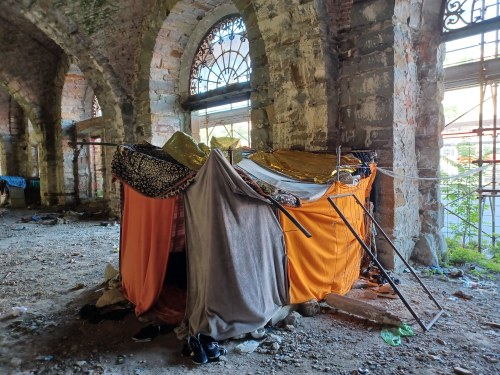
The Balkan Route is the most important overland informal migration corridor in Europe, taken by thousands of refugees every year.
Linking Greece to Western Europe across Bulgaria, Romania, Albania, North Macedonia, Kosovo, Montenegro, Serbia, Bosnia-Herzegovina, Slovenia, and Croatia, the Route is a complex geography of formal and informal, visible and ‘invisible’ sites; an assemblage of diverse actors, camps, borders, violence, solidarity, and a multiplicity of micro-routes, constantly adapting and shifting.
Across and between these interconnected spatialities, refugees forge their trajectories towards Europe through ‘The Game,’ the term they use to refer to their clandestine journeys. Along the Route, an archipelago of formal and informal camps has emerged. Key in producing and sustaining The Game, these sites serve as temporary shelters, nodes of services and information, where refugees meet smugglers, wait, and plan the next move.
To understand how informal migration corridors work TheGAME aims to: